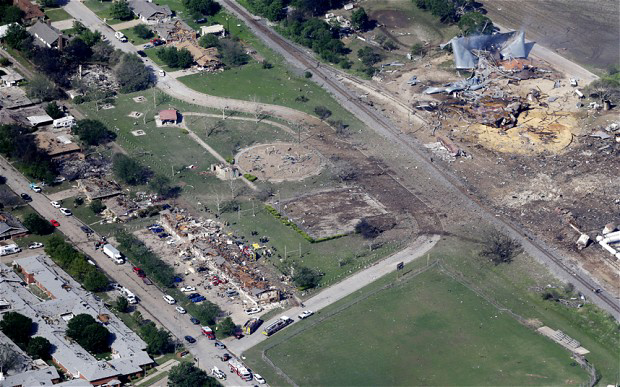Small Business
Texans Affected by Fertilizer Plant Explosion Given Tax Extensions by State
Texas Comptroller Susan Combs has announced that taxpayers in McLennan County affected by the fertilizer plant explosion in the town of West, Texas, can postpone paying state taxes while they recover from the devastation.
Apr. 20, 2013

AUSTIN – Apr. 20, 2013 – Texas Comptroller Susan Combs has announced that taxpayers in McLennan County affected by the fertilizer plant explosion in the town of West, Texas, can postpone paying state taxes while they recover from the devastation. Businesses can call the agency at their convenience and request extensions up to 90 days to file any state tax due this month.
The explosion, which happened on April 17, 2013 at the West Fertilizer Company storage and distribution facility, killed at least 14 people and injured about 200, according to the latest reports. As many as 11 of the fatalities were first responders fighting the fire. The blast also damaged or destroyed about 175 buildings and homes in the small town of about 2,800.
On Thursday, President Barack Obama declared a state of emergency, which provides some federal aid for relief efforts.
According to the Dallas Morning News, “The fertilizer facility had at least 540,000 pounds of ammonium nitrate, Texas Health Department records show. That is 100 times more than what was used in the Oklahoma City bombing” on April 19, 1995.
“Our thoughts and prayers go out to all the people in the tight-knit community devastated by the deadly fertilizer plant explosion,” Combs said. “Postponing taxes will help businesses and families in West focus on recovering from the disaster. I also want to remind residents that certain recovery-related expenses are exempt from sales tax.”
Recovery-related sales tax exemptions include:
- The cost of labor to repair damage caused by the explosion to non-residential property, including offices, stores and other commercial buildings.
- The cost of labor must be separately stated on the repair bill. (Texas never imposes sales tax on labor for residential repairs.)
- Services used to restore damaged property, including dry cleaning of clothing and draperies; rug and carpet cleaning; furniture cleaning; and appliance repairs.
- Charges for cutting trees damaged by the explosion. Charges to haul away trees and limbs are taxable.
- Purchases made with vouchers or debit cards provided by relief organizations such as the Red Cross and Salvation Army are non-taxable.
- Purchases made with cash or personal funds are subject to sales tax.
More information from the Texas Comptroller’s Offices is at http://www.window.state.tx.us.
